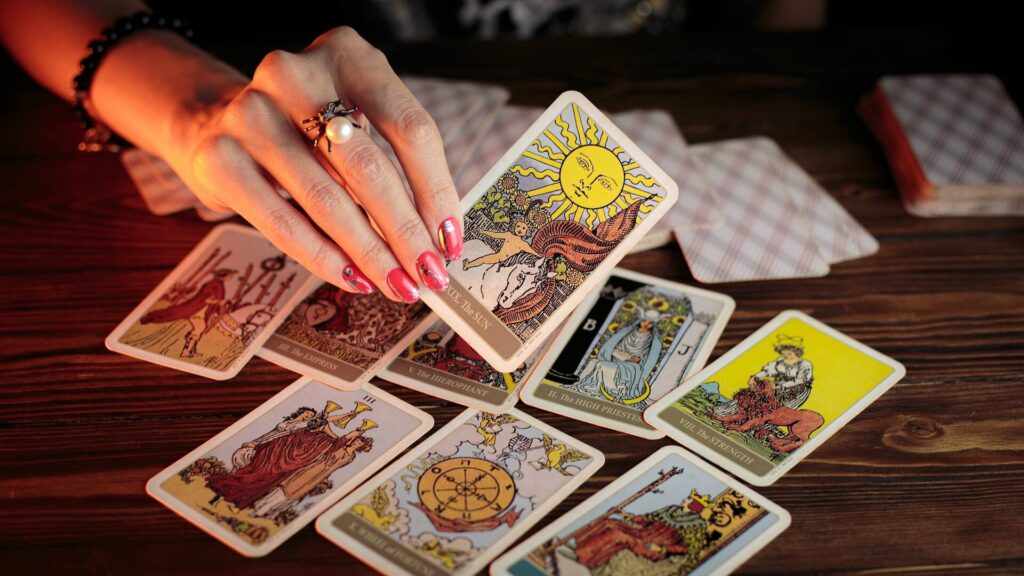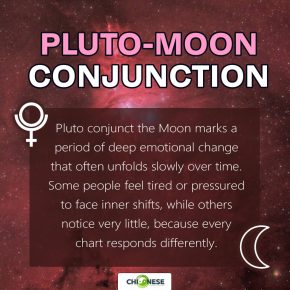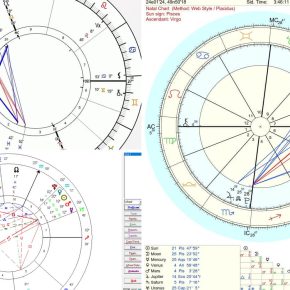Tarot cards are everywhere these days: Instagram reels, TikTok lives, YouTube readers pulling cards for “whoever needs this message.” The imagery is beautiful, the symbolism feels deep, and the ritual of shuffling cards can feel calming in a chaotic world. It’s not surprising that Muslims, like everyone else, get curious. Some watch “just for fun.” Others even buy a deck and convince themselves it’s harmless.
In Islam, tarot isn’t just a quirky hobby. It’s haram. Forbidden. The reason is simple: tarot is a tool of divination. It claims to reveal hidden knowledge or the future, and that’s territory that belongs only to Allah (SWT). Relying on it, even lightly, shifts trust away from Him.
Why Islam Says No to Tarot
Islam is clear about one thing: the unseen (al-ghayb) belongs to Allah alone. No human, no cards, no stars, no energy reading can reveal it. Divination of any kind, tarot, astrology, numerology, falls into forbidden territory because it pretends to access knowledge that only Allah holds.
Tarot isn’t just “self-reflection.” Its roots are in fortune-telling, and its whole framework is built on the idea that hidden truths or the future can be revealed through symbols. Even if you tell yourself, “I’m not predicting the future, I’m just reflecting,” the practice carries that same danger: shifting trust away from Allah and onto something man-made.
And it’s rarely innocent for long. Pulling one card when you’re stressed can spiral into asking about relationships, career, marriage, or health. Curiosity becomes reliance. Slowly, your heart starts leaning on cards instead of dua.
That’s why it’s haram. Not because cards are scary, but because they redirect trust.
Why People Still Feel the Pull
Life is uncertain. We crave clarity. We want reassurance about jobs, love, and the future. Tarot feels like a quick fix.
It’s also addictive. A single card can give you a dopamine hit, a sense that you’ve got insider knowledge. In a world where we scroll endlessly, chase instant answers on Google, and binge-watch people “read energy” online, tarot slides right in as another shortcut.
But shortcuts are rarely free. The price here is tawakkul: our trust in Allah’s plan. Islam teaches patience and prayer, not quick fixes. When you replace patience with tarot, you’re trading long-term peace for temporary reassurance.

What to Do Instead
If you’ve dabbled in tarot or still feel the temptation, it doesn’t mean you’re weak in faith. It means you’re human. The key is what you replace it with. Here are some halal ways to get the clarity or reflection you might have been seeking in tarot:
- Journaling + Dua: Write your worries down, then make dua for guidance. It gives the same reflection time without relying on cards.
- Istikhara prayer: This is literally the Islamic version of “asking for signs.” Instead of cards, you’re asking Allah directly to guide your decision.
- Seek wisdom: Talk to an imam, mentor, or trusted Muslim friend. Sometimes the clarity we want comes from conversation, not symbols.
- Fill the space: If tarot became a habit, replace it with Qur’an time or dhikr. Swap one ritual for another that strengthens, not weakens, your connection.
And if you’ve already tried tarot? Repent sincerely, ask Allah for forgiveness, and move on. His mercy is bigger than any mistake.
The Forbidden Fruit Isn’t Always Sweet
Part of why tarot feels so tempting is the very fact that it’s forbidden. Humans are drawn to “forbidden fruit” because it feels powerful, edgy, or secret. But most forbidden fruits turn out bitter once you bite into them. Tarot might look like insight, but it often creates more anxiety, dependency, and confusion than clarity.
Islam’s wisdom here is simple: protect your heart from false anchors. The answers you’re seeking don’t live in symbols or spreads… they live in your connection with Allah.












